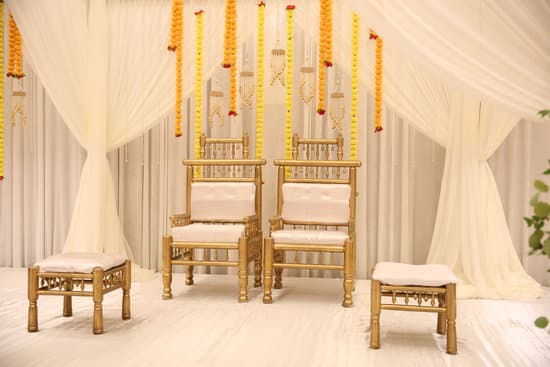Is it acceptable to wear white to a wedding? This question has sparked debates and raised eyebrows among wedding guests and fashion enthusiasts alike. In a world where traditional rules are constantly being challenged, the topic of appropriate attire for weddings remains a hot button issue.
As we delve into the history of wedding attire, we will uncover the evolution of dress codes over time. From strict guidelines dictating what guests could and couldn’t wear to more relaxed and modern trends in wedding fashion, the landscape of wedding attire has certainly shifted.
In this blog post, we will explore the etiquette rules surrounding wearing white to a wedding as a guest, breaking down traditional norms and discussing the taboo nature of such an act. Additionally, we will highlight exceptions to this rule, examining scenarios where wearing white may be deemed acceptable based on factors such as themed weddings or cultural customs.
History of Wedding Attire
Evolution of Wedding Attire
Throughout history, wedding attire has been steeped in tradition and symbolism. In Western cultures, the white wedding dress became popular after Queen Victoria wore one for her own wedding in 1840. This set a trend that has lasted for centuries, with white symbolizing purity and innocence. Guests at weddings were expected to adhere to certain dress codes, with black being considered taboo for many years.
As time progressed, wedding fashion evolved to include a wider range of colors and styles. The 20th century saw a shift towards more relaxed dress codes, allowing guests to express their personal style while still adhering to the overall theme of the wedding. However, one rule remained constant – guests were cautioned against wearing white to avoid upstaging the bride.
Traditional Dress Codes
In traditional etiquette, wearing white as a guest to a wedding is considered a major faux pas. White has long been reserved exclusively for the bride as it symbolizes purity and stands out among the crowd. Guests should aim to complement rather than compete with the bride on her special day. To avoid any confusion or potential offense, it is generally best to steer clear of white dresses or outfits when attending a wedding.
However, as societal norms continue to evolve, some couples are opting for more modern approaches to their weddings. With themed weddings becoming increasingly popular and cultural traditions influencing attire choices, there are now exceptions to the rule about white attire at weddings. Guests should always consider the specific context of the event before deciding on their outfit choice and ensure they respect any guidelines provided by the couple.
The Modern Wedding
When it comes to modern weddings, there has been a noticeable shift towards more relaxed dress codes for both the wedding party and the guests. This change is reflective of a broader cultural shift towards individuality and personal expression in all aspects of life, including fashion. As a result, traditional rules about what is acceptable to wear to a wedding have become more fluid, allowing for greater creativity and self-expression.
In recent years, it has become increasingly common to see guests wearing non-traditional colors like black, red, or even denim to weddings. As long as the attire is deemed appropriate for the specific event (e.g.
not too casual for a formal affair), many couples are open to letting their guests express their personal style in whatever way they feel comfortable. This openness to diverse fashion choices has extended to include even the once strictly off-limits color of white.
While wearing white as a guest to a wedding was once considered a major faux pas due to its association with the bride’s attire, today’s weddings often feature guests confidently donning white ensembles without fear of upstaging the bride. This shift in attitude can be attributed to changing societal norms surrounding marriage and individualism, where brides are encouraged to embrace unique styles and colors that may not necessarily include traditional ivory or white gowns.
Ultimately, what matters most is that guests show respect for the couple’s wishes while feeling comfortable and confident in what they choose to wear.
Etiquette Rules
When it comes to attending weddings, guests often find themselves questioning whether it is acceptable to wear white to such a celebration. The debate around this topic stems from traditional etiquette rules that dictate wearing white at a wedding should be reserved exclusively for the bride. This long-standing tradition has historically been upheld as a sign of respect and deference to the bride on her special day.
In the realm of wedding attire, there are certain unwritten rules that have persisted over time. One of the most well-known guidelines is the prohibition of guests wearing white to a wedding. The rationale behind this etiquette rule is rooted in avoiding upstaging the bride, who traditionally dons a white gown as a symbol of purity and innocence. By adhering to this unspoken rule, guests demonstrate their understanding and respect for the significance of the bride’s attire.
Despite the steadfast adherence to traditional wedding attire guidelines, modern times have seen a shift towards more relaxed dress codes. As societal norms evolve, so too do fashion trends surrounding weddings.
While white may still be considered taboo for wedding guests in many circles, there are exceptions to this rule that can vary depending on factors such as cultural customs or themed weddings where wearing white attire might be encouraged or expected. Ultimately, while there may be some flexibility in certain scenarios, guests should approach wearing white to a wedding with caution and consideration for the bride.
Exceptions to the Rule
When it comes to the age-old question of whether it is acceptable to wear white to a wedding, the answer may not always be a straightforward “no.” While tradition dictates that wearing white as a guest is taboo, there are certain scenarios where this rule can be bent or even broken.
Themed Weddings
One instance where wearing white to a wedding may be acceptable is if the couple has chosen a specific theme for their big day that calls for guests to don white attire. Whether it’s a whimsical winter wonderland theme or a chic all-white affair, guests are often encouraged to participate by wearing white themselves. In such cases, embracing the theme and dressing accordingly can add an element of fun and creativity to the event.
Cultural Customs
In some cultures, wearing white to weddings is not considered disrespectful or inappropriate. For example, in some Asian countries like China and India, wearing white symbolizes mourning and is typically avoided at weddings. However, in Western cultures like certain European countries or America, wearing white as a guest is less rigidly enforced. Understanding the cultural norms of the wedding you are attending can help determine whether wearing white would be accepted or frowned upon.
Casual Outdoor Weddings
As weddings become more personalized and relaxed, particularly outdoor ceremonies or beach weddings, dress codes have shifted towards more casual attire. In such settings, wearing white as a guest may not be as taboo as in traditional formal weddings. Embracing the laid-back vibe of these events allows for more flexibility in wardrobe choices, including opting for light-colored outfits like whites and creams without overshadowing the bride.
Bridesmaids in White
When it comes to weddings, bridesmaids play a significant role in enhancing the overall aesthetic and ambiance of the ceremony. Traditionally, bridesmaids were expected to wear dresses that complemented the bride’s gown while avoiding overshadowing her. However, with changing trends in wedding fashion, the idea of bridesmaids wearing white dresses is becoming more prevalent. The question then arises: how does this growing trend impact the guest dress code?
To begin with, it is essential to understand that the choice of bridesmaid attire largely depends on the preferences of the couple getting married. While some may opt for a traditional color palette for their bridal party, others may feel inclined towards more modern and unconventional choices, such as white bridesmaid dresses. In such cases, guests may find themselves questioning whether it is acceptable to wear white to a wedding when the bridal party itself is adorned in this color.
To provide clarity on this matter, let’s break down some key points regarding bridesmaids wearing white dresses and its impact on guest attire:
- In many cultures and traditions, wearing white to a wedding as a guest is still considered taboo due to its association with the bride.
- Some couples specifically choose white bridesmaid dresses as a way to create a cohesive and elegant aesthetic for their wedding party.
- Guests should always prioritize respecting the couple’s wishes when it comes to dress code, which may include avoiding wearing white out of courtesy.
Ultimately, while the trend of bridesmaids in white continues to gain popularity, guests should be mindful of the couple’s preferences and adhere to any specified dress codes. Communication and understanding are key when navigating these nuances in wedding fashion etiquette.
Celebrity Influence
Celebrities play a significant role in influencing fashion trends and setting norms for various occasions, including weddings. The question of whether it is acceptable to wear white to a wedding has been further complicated by the actions of celebrities attending such events. Over the years, we have seen numerous famous figures don white ensembles to weddings, sparking debate and discussion among the public.
Here are some ways in which celebrity influence has impacted attitudes towards wearing white to weddings:
- Celebrity Weddings: When high-profile individuals choose to wear white on their wedding day, it often sets a trend for guests as well. This can create a more relaxed approach to traditional dress codes, potentially leading guests to feel more comfortable wearing white themselves.
- Red Carpet Events: Celebrities attending red carpet events in white dresses or suits may inadvertently contribute to the blurring of lines between formal and informal attire. As such, guests may be more inclined to consider white outfits for weddings regardless of the traditional etiquette.
- Social Media Presence: With social media being a powerful tool for sharing and showcasing fashion choices, photos of celebrities in white at weddings spread quickly and reach a wide audience. This exposure can reinforce the idea that wearing white as a guest is not as taboo as it once was.
Overall, the influence of celebrities on public perceptions regarding wearing white to weddings cannot be overlooked. While traditional etiquette may still frown upon this choice, the evolving trends propelled by famous personalities have undoubtedly contributed to a shift in attitudes towards what is considered appropriate wedding attire.
Reader Poll
While the debate over whether it is acceptable to wear white to a wedding continues to spark controversy, it is evident that the traditional rules of wedding attire are evolving with the times. The history of wedding fashion has seen significant changes, from strict dress codes to more relaxed and inclusive approaches. The modern wedding now embraces diversity and personal expression, allowing guests to experiment with their outfits while still respecting certain etiquette guidelines.
In exploring the etiquette rules surrounding guest attire at weddings, one cannot ignore the taboo of wearing white as a non-bride attendee. While this rule may have been strictly adhered to in the past, exceptions are now being made based on specific circumstances. Themed weddings or cultural customs may permit guests to wear white without overshadowing the bride, demonstrating a shift towards more leniency in interpreting traditional dress codes.
The influence of celebrities on wedding fashion choices cannot be overlooked, as their bold statements often set new trends and expectations. However, ultimately, the decision to wear white to a wedding is a personal one that should consider both respect for tradition and individual style preferences.
As our reader poll results reveal, opinions on this matter vary widely among different individuals, reflecting the diversity of perspectives within society when it comes to what is considered appropriate or acceptable in wedding attire choices.
Frequently Asked Questions
What to Do if Someone Wears White to a Wedding?
If someone wears white to a wedding, it is considered disrespectful because white is traditionally reserved for the bride. In this situation, it’s best to avoid confrontation and focus on enjoying the celebration.
How to Wear White to a Wedding Without Offending the Bride?
To wear white to a wedding without offending the bride, it’s important to choose an outfit that doesn’t resemble a bridal gown. Opt for a dress with colorful accents or patterns and accessorize with bold, contrasting colors to make it clear you’re not trying to upstage the bride.
Can You Wear a Blue and White Dress to a Wedding?
Wearing a blue and white dress to a wedding can be appropriate as long as the overall look leans more towards blue than white. This will help you avoid any confusion with looking like you’re trying to compete with the bride on her special day.

I have been involved in marriages for over 20 years helping couples and singles understand more about them.





